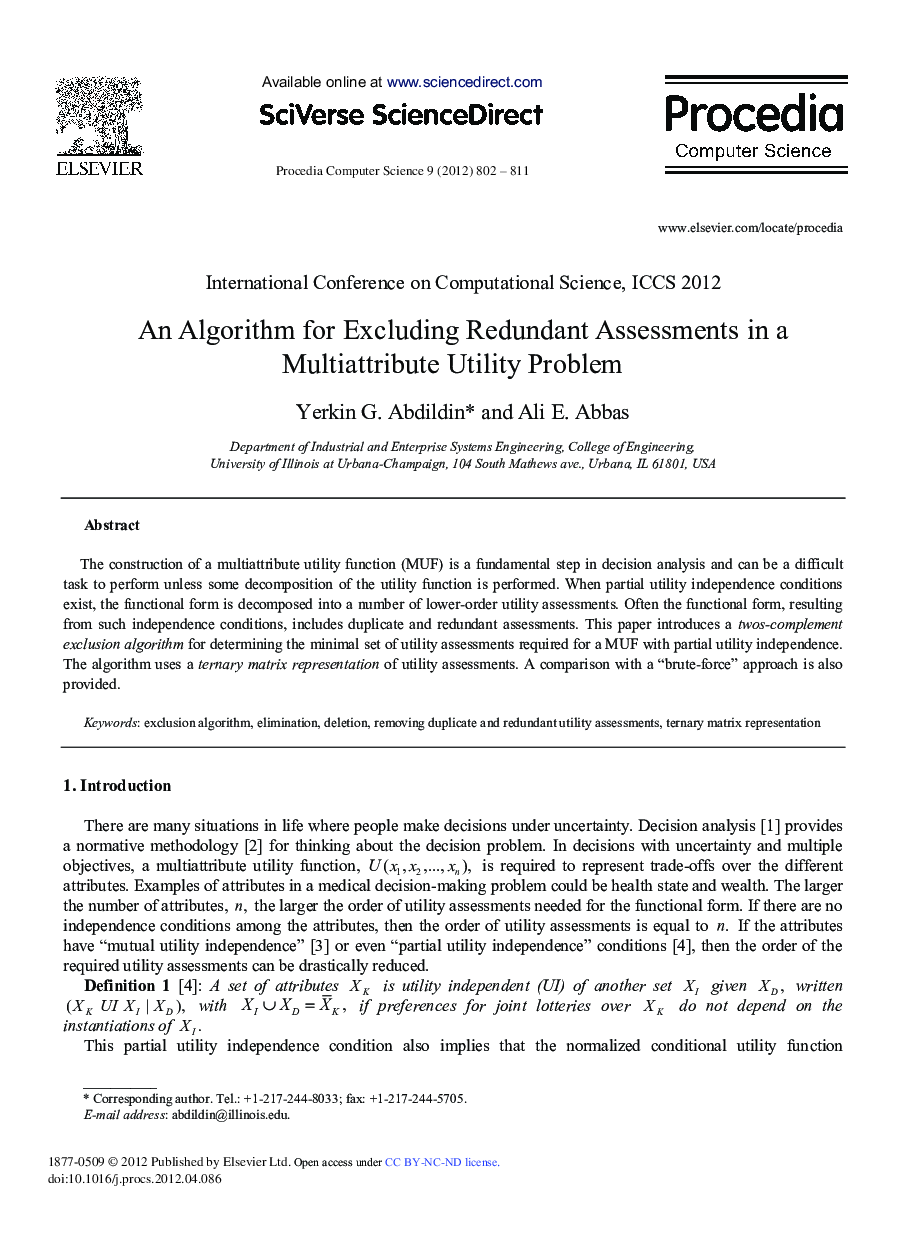| Article ID | Journal | Published Year | Pages | File Type |
|---|---|---|---|---|
| 486749 | Procedia Computer Science | 2012 | 10 Pages |
The construction of a multiattribute utility function (MUF) is a fundamental step in decision analysis and can be a difficult task to perform unless some decomposition of the utility function is performed. When partial utility independence conditions exist, the functional form is decomposed into a number of lower-order utility assessments. Often the functional form, resulting from such independence conditions, includes duplicate and redundant assessments. This paper introduces a twos-complement exclusion algorithm for determining the minimal set of utility assessments required for a MUF with partial utility independence. The algorithm uses a ternary matrix representation of utility assessments. A comparison with a “brute-force” approach is also provided.
